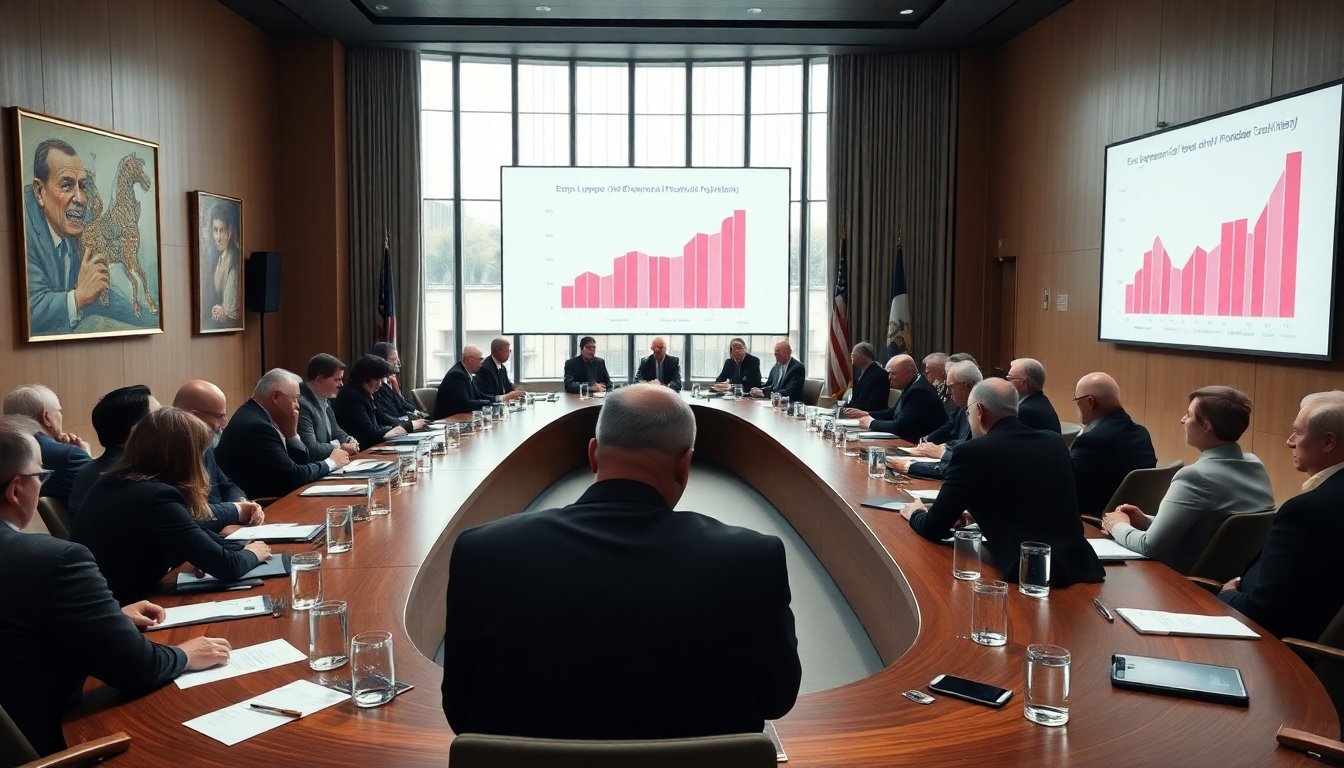Table of Contents
In a historic gathering, European leaders are set to confront the challenge of rising populism at a summit in Brussels. For the first time in many years, the agenda will focus on critical issues that far-right parties have exploited across the continent. This shift occurs as traditional political parties, including center-right, center-left, and liberal groups, find their dominance increasingly threatened since World War II.
The upcoming Council meeting will convene all 27 heads of state and government, aiming to demonstrate the European Union’s commitment to addressing the concerns that have sparked voter discontent. From Paris to Rome, and from Berlin to Amsterdam, nationalist forces are either in power or gaining influence, leveraging public anger to bolster their positions.
Strategic responses to populism
As European leaders prepare for discussions, one of their primary goals is to prevent a future where far-right leaders, potentially hostile to the EU’s existence, sit at the Council table. Such a scenario would raise significant questions regarding Western military power and the overall future of the Union. A draft of the summit’s conclusions reveals that leaders plan to address housing, defense, digital and green transitions, and immigration—essential elements in curbing far-right populism.
A new identity for the EU
This week’s summit is described as a turning point for the EU, as leaders seek to establish a new identity for the Union. According to a diplomat involved in the preparations, this endeavor is fraught with difficulty, as it involves navigating complex internal processes to find solutions to issues that have historically eluded the EU’s grasp.
Housing, once considered too mundane for high-level discussions, has emerged as a pressing issue influencing politics across the Union. The affordability crisis has enabled far-right parties to secure significant electoral victories. For instance, in the Netherlands, Geert Wilders’s Party for Freedom capitalized on the housing shortage, linking it to immigration and asylum seekers. Similarly, in Portugal, the Chega party has risen to prominence by criticizing the establishment’s failure to address skyrocketing housing costs.
Urgent housing crisis
The European Council is now addressing the housing crisis, albeit belatedly. Ursula von der Leyen, President of the European Commission, has characterized the housing shortage as a social crisis for over a year. A dedicated portfolio for housing has been established within the Commission, led by Danish Commissioner Dan Jørgensen, who is set to unveil the EU’s first affordable housing plan in December. The European Parliament has also formed a special committee to investigate this pressing issue.
Rebuilding trust in the EU
António Costa, President of the European Council, has long emphasized the urgency of the housing crisis, comparing its impact on public trust in the European project to the Russian invasion of Ukraine. According to him, demonstrating the Union’s ability to address tangible issues such as housing is crucial for restoring citizen confidence.
Previously, the EU’s involvement in housing-related matters seemed improbable. However, with the ongoing crisis affecting all member states, consensus remains elusive on effective solutions. National leaders find themselves divided politically, often clashing over issues like real estate speculation, short-term rentals, and the expansion of social housing programs.
Defensive measures against populism
In addition to housing, defense is another strategic area where European center-right and center-left politicians aim to counter populist narratives. The European Defense Commissioner has projected that combined defense budgets of member states and European funds will reach €2.4 trillion over the next four years. This unprecedented increase in defense spending could, theoretically, offset the challenges faced by the struggling automotive industry, which employs nearly 14 million people, accounting for about 6% of employment in Europe.
During the summit, discussions will also revolve around social media regulation, as the EU grapples with the influence of American tech giants like Meta and X, which have been criticized for amplifying far-right messages. The recent Romanian elections highlighted TikTok’s role in disseminating extreme-right content, further complicating the EU’s regulatory efforts.
Finding effective solutions
The upcoming Council meeting will convene all 27 heads of state and government, aiming to demonstrate the European Union’s commitment to addressing the concerns that have sparked voter discontent. From Paris to Rome, and from Berlin to Amsterdam, nationalist forces are either in power or gaining influence, leveraging public anger to bolster their positions.0
The upcoming Council meeting will convene all 27 heads of state and government, aiming to demonstrate the European Union’s commitment to addressing the concerns that have sparked voter discontent. From Paris to Rome, and from Berlin to Amsterdam, nationalist forces are either in power or gaining influence, leveraging public anger to bolster their positions.1
The upcoming Council meeting will convene all 27 heads of state and government, aiming to demonstrate the European Union’s commitment to addressing the concerns that have sparked voter discontent. From Paris to Rome, and from Berlin to Amsterdam, nationalist forces are either in power or gaining influence, leveraging public anger to bolster their positions.2


